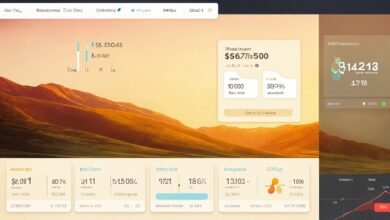Tips for Getting Into Business Analytics

Embarking on a career in business analytics requires a comprehensive understanding of the field, essential skills, and relevant experience. It’s a dynamic industry where big data, machine learning, and statistical analysis come together to create actionable business insights. Whether you’re a recent graduate or a professional looking to pivot your career, the right approach can set you on the path to success. Keep reading for valuable tips on how to break into this exciting and growing field.
Building a Strong Educational Foundation

A solid educational background is often critical for a career in business analytics. A degree in mathematics, statistics, computer science, or a related field can provide the necessary theoretical knowledge. As the industry evolves, continuous learning becomes a distinguishing feature of successful business analysts.
Pursuing higher education, such as a master’s in business analytics, can greatly enhance your understanding of the field. Specialized programs often offer cutting-edge curricula aligned with the industry’s ever-changing demands. Enrolling in one of the best programs for business analytics can be a pivotal step in your journey.
Certifications and short courses offered by professional bodies and online platforms can bolster your resume with credentials demonstrating commitment and expertise. These additional qualifications can be particularly valuable when they focus on specific skills like data visualization or machine learning methodologies.
Remember, education isn’t limited to formal settings. Attending industry conferences, participating in webinars, and keeping up with relevant publications can complement formal education and ensure you stay informed on the latest trends and technologies in the analytics landscape.
Essential Skills for Aspiring Business Analysts

Building a toolkit of essential skills is paramount for an aspiring business analyst. Proficiency in statistical analysis, understanding of database structures, and experience with programming languages such as R or Python are foundational. These technical skills enable extracting and interpreting complex datasets, a core component of analytics work.
Apart from technical prowess, strong analytical thinking is indispensable. You must identify patterns, draw insightful conclusions, and communicate findings. This often involves sifting through large volumes of data to discern actionable information that can influence strategic decisions.
It’s also important to develop business acumen. Knowledge of your chosen industry’s operations, economics, and challenges lets you contextualize analytical findings meaningfully for stakeholders. You’ll need to translate data into stories that resonate with non-technical audiences, making robust communication skills essential.
In addition to individual competencies, teamwork is pivotal in business analytics. Collaboration with other departments, often on projects with tight deadlines, requires working efficiently within diverse teams. Cultivating these interpersonal skills early will serve you well in this collaborative profession.
Gaining Practical Experience in Business Analytics
While education lays the foundation, practical experience gives you the hands-on skills to succeed. Internships or entry-level positions in data analysis can provide exposure to real-world challenges. Working with seasoned professionals offers invaluable insights and allows you to apply theoretical knowledge to practical situations.
Engaging in independent projects or contributing to open-source analytics initiatives can also demonstrate initiative and expertise. These opportunities enable you to develop a portfolio of work that showcases your analytical capabilities to potential employers. Moreover, handling real datasets builds confidence in data manipulation and interpretation.
Employers often look for evidence of problem-solving and innovation in prospective analysts. Participating in hackathons, data competitions, or research projects can convey your ability to devise creative solutions under pressure. Such experiences prove you’re equipped to tackle the complex problems that businesses face today.
Also, freelancing as a business analyst can provide practical experience and help you foster a professional network. Engaging with clients across various industries fine-tunes your ability to adapt your skills and knowledge to differing analytics scenarios and business models.
Overall, breaking into business analytics requires a combination of strong educational foundations, essential technical skills, and practical experience. By continuously learning and gaining hands-on exposure, you can position yourself for success in this dynamic and rapidly growing field.





